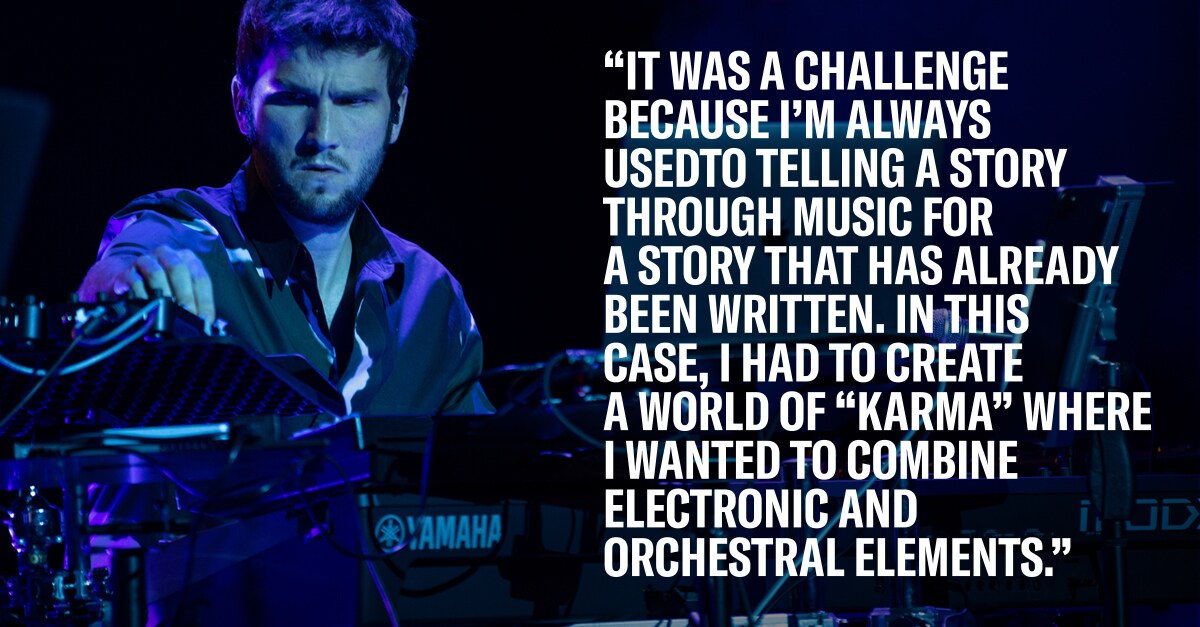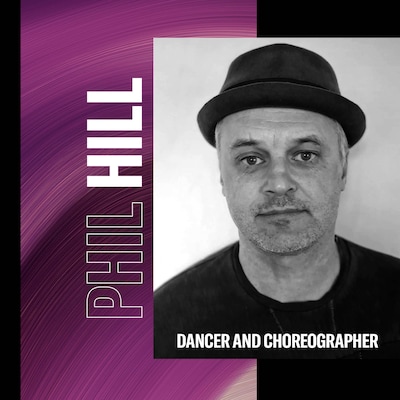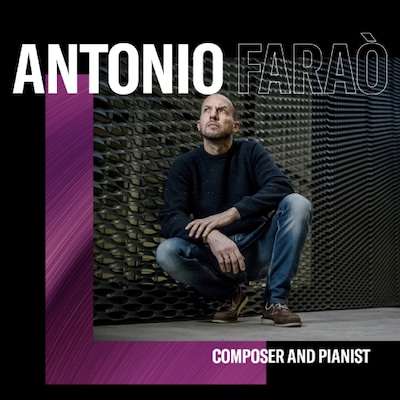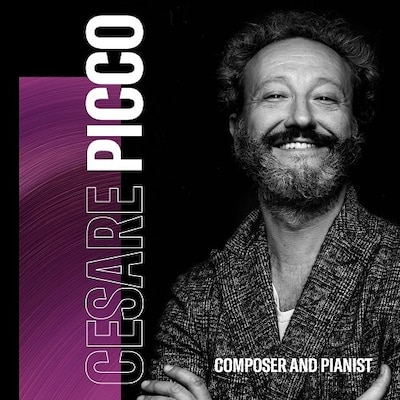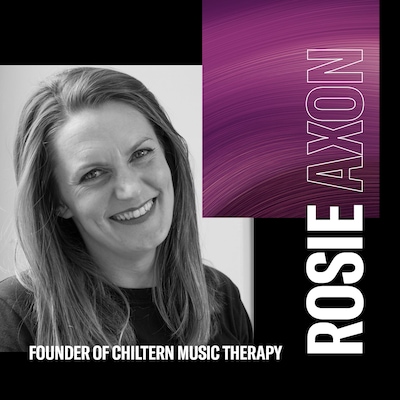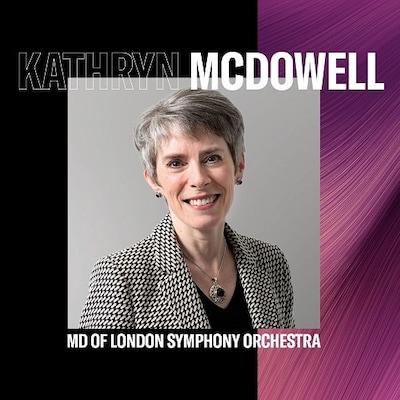Yamaha Make Waves Interviews: Lucas Vidal
Movie composer Lucas Vidal began to make waves at an early age. Here he explains how his drive for self-expression has been realised by bringing together musicians and audiences while inspiring them to push at musical boundaries.
By Julian Marszalek
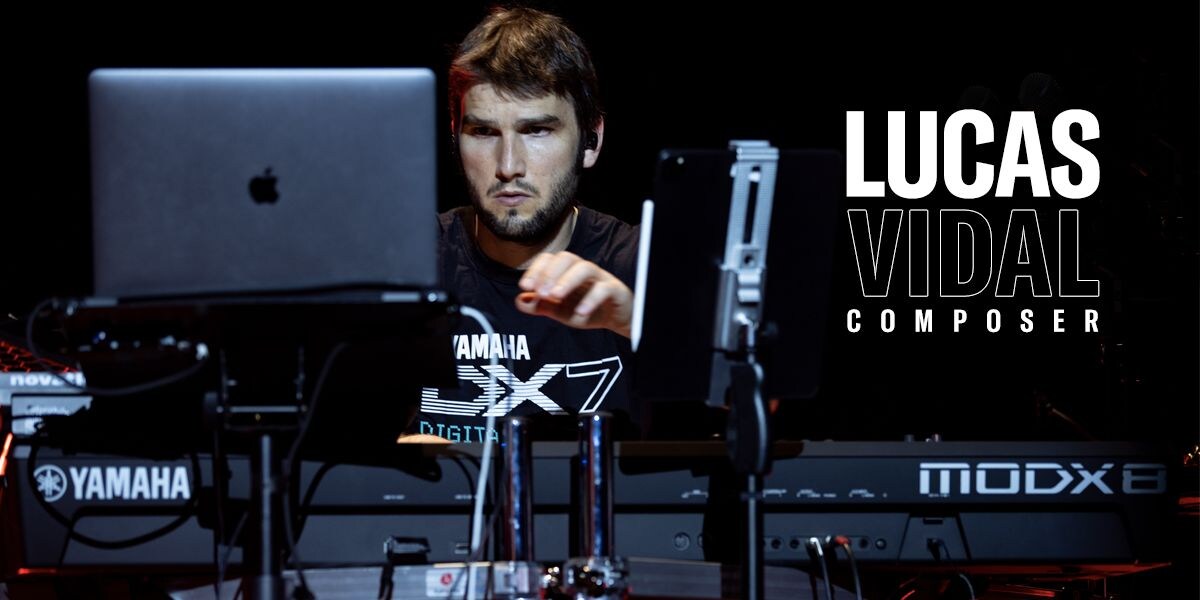
Podcast Lucas Vidal
The two-time Goya Award-winning film composer Lucas Vidal is thinking about the new path and sense of liberation that his career has taken in light of the release of his debut, non-soundtrack album, ‘Karma’.

Not that the experience was totally plain sailing: “It was a challenge because I’m always used to telling a story through music for a story that has already been written. In this case, I had to create a world of karma where I wanted to combine electronic and orchestral elements.”
At first glance, it may seem that Vidal’s desire to sail into uncharted musical waters by bringing together the seemingly disparate musical styles of classical music with electronica is a bold move for someone best known for composing movie soundtracks, but in truth, it’s a logical step for a restlessly creative individual whose ability to make waves has been in evidence since an early age. With over 20 movie soundtracks to his name - including ‘The Fast & Furious 6’ and ‘The Quiet Ones’ - and now dividing his time between his native Spain and Los Angeles, 37-year-old Lucas Vidal has flourished from musical child prodigy to an inspirational figure with a desire and ability to bring together audiences as much as the musicians he uses to create his art.
Yet could it have been any different? Probably not, as music has been a feature in Lucas Vidal’s life since a very early age. Not only had his grandfather been one of the founders of the Spanish record label Hispavox, but he also took up the piano and recorder at the age of three.
“I had piano classes in kindergarten,” says Vidal as he recalls his earliest musical memories. “My parents put me there when I was four-years-old; it was ridiculous because all the other kids were about seven!”
He adds with a mischievous chuckle: “I loved the recorder because it was small. It was great because when I went to the restroom, I would take it and just rehearse for hours and hours. I was so good at it; I even played two recorders at the same time! I was doing counterpoint and harmonies on one and playing with the other.”
Seduced by the music of Bach and Mozart, Vidal’s earliest memories of hearing live classical music are of the weekend trips with his parents to listen to the National Orchestra in Spain.
“I was so obsessed with it that even my parents would say, ‘If you’re bad then you’re not going to go!’” smiles Vidal. “I guess I was a different kid in that regard because I had the musical education.”
And that education continued at home: “Every time that we could watch movies on TV, I would start improvising with a piano, especially using classical music. I would play Bach or Mozart or Beethoven. My speciality was to continue to improvise in that style, so if I was playing Chopin, I would continue playing in a Chopin style.”
Yet for all that, a lack of dedicated music schools in Spain meant that Vidal cast his gaze abroad in order to continue with his musical education. And so, at age of 16, Lucas Vidal enrolled at a summer camp at the Berklee College of Music in Boston. It was a home away from home.
“I saw all the kids there doing the same that I was doing,” he enthuses. “They had the same motivation.”
Inspired by his love for Ennio Morricone’s soundtrack for ‘Cinema Paradiso’ as well as the era-defining work of John Williams (‘Stars Wars’, ‘Raider Of The Lost Ark’), it was here that his interest in film music composition and scoring for orchestras was awakened and realised when he was offered a scholarship by the school.
“Since I was 15, I knew that that was my thing,” he smiles. “From my first summer in Berklee I loved the recording process. It was meant to be. I love it! I would go to sleep thinking that I hope I sleep fast so that I can wake up early and I can continue learning. It was ridiculous!”
Surrounded by young, like-minded and motivated souls, Vidal could not help but soak up the creative atmosphere and environment in which he found himself. Often sat at the front of his classes, Vidal began making extra-curricular recording sessions of his own
But then, his plans looked set to derail when he was diagnosed with cancer at the age of 20.
“I had to go back to Spain,” he says. “To be honest, that gave me even more energy: ‘I am not going to die; I’m going to go back and try to learn’.”
It was upon returning to Berklee that Vidal’s nascent career began to take flight, for as much as he was a composer and musician, he also proved to be an adept catalyst with an ability to bring musicians together with filmmakers taking the earliest steps in their particular craft. All it took was a little bit of chutzpah and a modest hospitality rider.
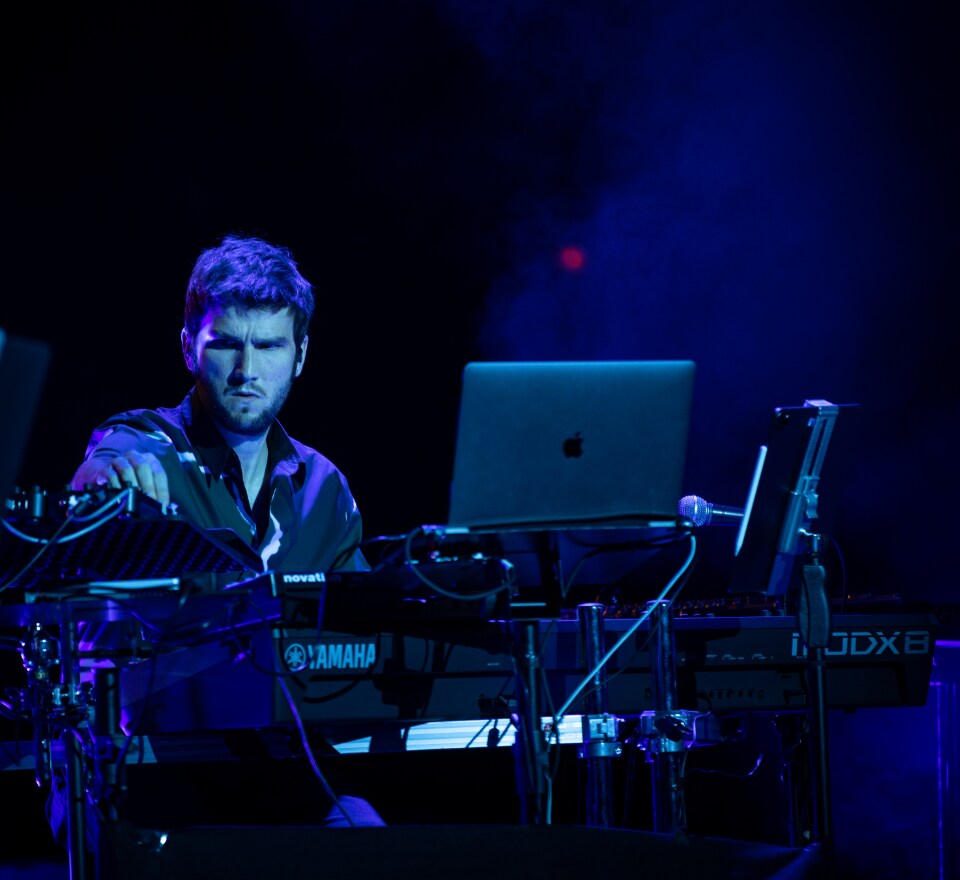
“I’d stop people from the Boston Conservatory in the street and say, ‘Listen, do you want to be part of a recording session? I don’t have any money but I can give you pizza and a recommendation for your scholarship.’ I ended up having a notebook with about 120 different names of musicians!
“So the following week, I was like, ‘OK, I’m recording with another orchestra’ and so I’d call all the different players and other friends who were studying to be engineers and then, boom! We’d start recording.”
It was a chain of events that would culminate in Lucas Vidal becoming the youngest-ever film composer at Berklee. Introduced by one of his teachers to a filmmaker friend, Vidal set about composing and scoring a film soundtrack while gathering together the musicians who would be his orchestra.
“I was 19 or 20 and it was super, you know?” he says with no little pride.
Lucas Vidal continued to think big and, in tandem with his newly-created company, Music and Motion Productions, set about weaving together artistic talent from a variety of schools.
“I wanted to do bigger projects, so I went to Emerson College in Boston who did other arts disciplines,” explains Vidal. “I went to the president and said, ‘Listen, why don’t you give us the best short film – we can make it a contest – and I’ll do the music with a full orchestra?’ And they loved it.
“Then I went to the Boston Conservatory and said to their president, ‘Listen, why don’t you give me an orchestra and this will be a great opportunity for your students to see how film scoring works?’ and they said, ‘Great!’
“And then I went to Berklee and said, ‘I have a film, I have the players and all I need is the budget and money to go to a big studio and it’ll be a great marketing tool for you guys and a great correlation for all the schools.’”
With each project growing in size, Lucas Vidal decided that he wanted his last project at Berklee to be recorded at Boston’s Symphony Hall.
“I ended up talking to a visual school in Miami that had partnered with Universal and they gave me this amazing animation film score and I ended up doing that recording,” explains Vidal. “It was like 180 players at the Boston Symphony Hall and we invited all the major Spanish companies from the Consul. I was so obsessed with this that my friends from school were involved putting together the score and doing the parts. I had a team of about 12 or 13 students helping me out to help create this.”
As far as Lucas Vidal was concerned, getting the most out of his collaborations with musicians and filmmakers was every bit as important as getting good grades from Berklee. By the time of his graduation in 2007, Vidal had almost 90-minutes’ worth of original material that helped secure his first post-graduate project with NBC/Universal.
Crucially, Lucas Vidal also cultivated the skills needed to bring out the best in the musicians that he worked with in order to bring his musical visions to life. Recalling his experience recording the soundtrack to the Bruce Willis and Sigourney Weaver movie, ‘The Cold Light Of Day’, Lucas explains that a lot of psychology, empathy and humour was deployed.
“I remember the first time I went to Abbey Road studios with a full orchestra and I knew that, in order to get the most out of the players, I had to have a plan. So I bought a second-hand, broken violin and about a half hour before the session I went to the concert master and said, ‘Listen, let’s teach the violins, so when you show the film give me the violin’. So, 10 o’clock came and he gave me the violin and then, boom! On the count of three, I broke it! And all the players were like, ‘Holy Moly! He just broke a £500,000 violin!’ And I said, ‘No! It’s a joke!’”
Lucas Vidal laughs at the memory of how his practical joke broke the ice to create a team spirit: “Man! They loved it! They all started laughing and you’d see their faces and they were laughing and smiling! And then, it was easier for me to give them direction. When you have good empathy and you’re nice to them and when they see that you are a normal human being, then they relax and then they get the best out of it.”
With such an impressive and award-winning body of work behind him, Lucas Vidal is no mood to slow down, but he is eager to widen his musical horizons. Making the audacious decision to decline a number of soundtrack projects, Lucas Vidal has turned his attentions to electronic music as a new means of expression. The result is ‘Karma’, an album that weaves together his burgeoning interest in this area as well as his deep love of classical music. But how did he bind those threads together?

“I wanted to create a lot of modulations and create a contemporary classical piece, but it took me a while to end up with this sound.”
Lucas Vidal has chosen the title of his album well. As well as heading out beyond his usual depths, the project has helped him grow and develop as an artist to take on projects that might not have otherwise have happened.
“It’s helped me a lot because I was for three years swimming into these waters where I was connecting electronic music with the orchestra. And this has helped me to compose LaLiga’s anthem; it was quite a big job. That’s the reason that it’s called ‘Karma’ as well, because it all depends on your actions. If you take a decision then it has reactions. And in my case, it was a good thing to produce and get into this album.”
Driven by the passion at the heart of his craft, Lucas Vidal is as keen to unite fans of classical and electronic music as he is to bring together musicians from those genres to create something new to make waves.
“It’s an opportunity for classical players to find and explore other sounds, like electronic music,” states Vidal. “I know that a lot of conservatory people say that electronic music isn’t music and that it isn’t high level, but it’s not true! There are amazing electronic producers.
“In the end, music gives emotion to people. If you get emotion out of that piece, to me, it works! Yes, Bach is a genius, but I can tell you that in a hundred years, future generations will say that geniuses created electronic music. It’s like a tree branching out.”
